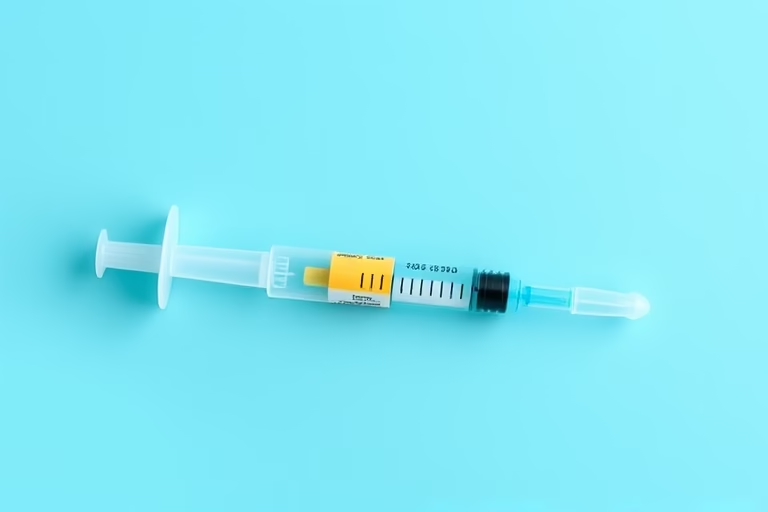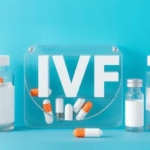We will be talking about IVF injections schedule. In vitro fertilization (IVF) is a widely used assisted reproductive technology (ART) that helps couples conceive. One of the most crucial aspects of the IVF process is the schedule for injections, which includes hormone treatments to stimulate egg production, facilitate ovulation, and prepare the uterus for implantation. Typically, medications such as follicle-stimulating hormone (FSH), luteinizing hormone (LH), and human chorionic gonadotropin (hCG) are employed. Each medication has a specific timing and dosage, making adherence to the injection schedule essential for the success of the treatment. An organized and well-understood IVF injection schedule allows for optimal egg retrieval and fertilization chances. With a good understanding of the injections involved, the timing, and their purposes, individuals can better navigate this complex journey towards parenthood.
Understanding IVF Injections
IVF injections play a vital role in the fertility treatment process. The primary objective of these injections is to stimulate the ovaries to produce multiple eggs, rather than the single egg that is typically released in a woman’s natural menstrual cycle. Medications are administered to encourage the ovaries to respond effectively, maximizing the chances of retrieving viable eggs for fertilization.
The most commonly used injections include:
- Follicle-stimulating hormone (FSH): This hormone promotes the growth of ovarian follicles.
- Luteinizing hormone (LH): This hormone assists in triggering ovulation.
- Human chorionic gonadotropin (hCG): This medication is used to trigger the final maturation of eggs.
Each of these hormones has specific administration times and dosages, which are crucial for successful IVF outcomes. Understanding and following the IVF injections schedule closely plays a significant role in ensuring optimal results.
Types of IVF Injections
Different types of injections are used during the IVF process, each serving a specific purpose in the treatment protocol. The types may vary based on individual patient needs, but here are the common injection types:
- Gonadotropins: These include FSH and LH combinations and are designed to stimulate the ovaries.
- GnRH Agonists: Used to prevent premature ovulation during the stimulation phase.
- GnRH Antagonists: Administered to inhibit the release of hormones that could lead to premature ovulation.
- hCG: Administered to trigger ovulation when the follicles are mature.
Understanding the types of injections allows patients to know what to expect during the IVF process. Each medication will have specific instructions regarding the timing and administration method.
Setting Up an IVF Injections Schedule
When considering IVF, establishing a well-organized injections schedule is crucial. This schedule guides when to administer each medication and helps track the treatment progress. The IVF injections schedule generally starts on a specific day of the menstrual cycle, usually around day two or three. A sample schedule may include:
- Start FSH and LH injections on cycle day 2.
- Continue injections for about 10-14 days, monitoring follicle development with ultrasound.
- Administer hCG injection once follicles reach the desired size.
- Plan for egg retrieval approximately 36 hours after the hCG injection.
Creating a schedule requires clear communication with the healthcare provider. Professional guidance ensures correct timing and dosage, maximizing the chances of a successful IVF cycle.
The Importance of Timing
Timing is a critical aspect of the IVF injections schedule. Each injection must be administered at specific intervals to align with the body’s hormonal responses. Precise timing can significantly affect the success rate of pregnancy through IVF.
Administering injections too early or too late can lead to suboptimal results. For instance, if follicle-stimulating hormone injections are not given at the correct time, it could result in inadequate ovarian response and lower egg yields.
Monitoring follicle growth through ultrasound can help determine the correct timing for the administration of the hCG injection. Successful ovulation depends on the use of timing to make informed decisions about retrieval and fertilization sustainable.
Handling Side Effects of IVF Injections
IVF injections may cause various side effects that individuals should be aware of. Managing these effects often requires communication with healthcare providers.
Common side effects may include:
- Injection site reactions such as redness and swelling.
- Hormonal fluctuations leading to mood changes.
- Ovarian hyperstimulation syndrome (OHSS) in rare cases, leading to bloating and discomfort.
Being prepared to handle side effects helps in ensuring the continuity of the treatment. Patients should promptly report any unusual symptoms to their medical team for advice and support.
Support During IVF Treatment
The IVF journey can be emotionally taxing, making support all the more critical. Partner involvement, family support, and mental health resources such as counseling can be beneficial.
Engaging in discussions about experiences, emotions, and concerns can alleviate stress. Support groups for individuals undergoing IVF treatment can provide a sense of community and understanding during the challenging moments.
It is crucial for individuals to care for their mental and emotional well-being while adhering to the IVF injections schedule.
What to Expect After Injections
Post-injection expectations are just as important as injecting itself. Following the administration of hCG, individuals prepare for egg retrieval. This process typically occurs around 36 hours after the hCG injection and may involve mild sedation.
After retrieval, individuals may experience some cramping and discomfort. Understanding what to expect post-injection ensures that patients can prepare adequately for recovery. Medication and self-care protocols should be clearly discussed with the medical provider beforehand.
Final Thoughts
Understanding the IVF injections schedule is integral to the IVF process. From the types of injections administered to the importance of timing, each aspect plays a role in the overall success of fertility treatments. Patients should familiarize themselves with the injection types, set a clear schedule with their healthcare provider, and communicate openly about side effects and emotional support needs.
Moreover, staying organized and adhering to the established injections schedule greatly enhance the chances of successful oocyte retrieval and fertilization, paving the way towards achieving pregnancy. By being informed and proactive, individuals can improve their experience and outcomes during this intricate journey towards parenthood.
Here are some frequently asked questions regarding IVF injections schedule:
-
What is the average duration of an IVF injections schedule?
The duration commonly lasts from 10 to 14 days, depending on the individual’s response to the medication.
-
Can I adjust my IVF injections schedule?
Any changes to your schedule should be discussed with a healthcare provider to ensure the treatment’s success.
-
What should I do if I miss an injection?
Contact your fertility clinic immediately for guidance on how to proceed.
-
Are there any dietary restrictions during IVF injections?
Consult with your healthcare provider for individualized dietary recommendations during treatment.
-
How can I manage the stress associated with IVF treatment?
Engaging in relaxation techniques, yoga, or counseling can help alleviate the stress that often accompanies IVF treatment.
Further Reading
What Type of Psychotherapy Is Best for Anxiety?







